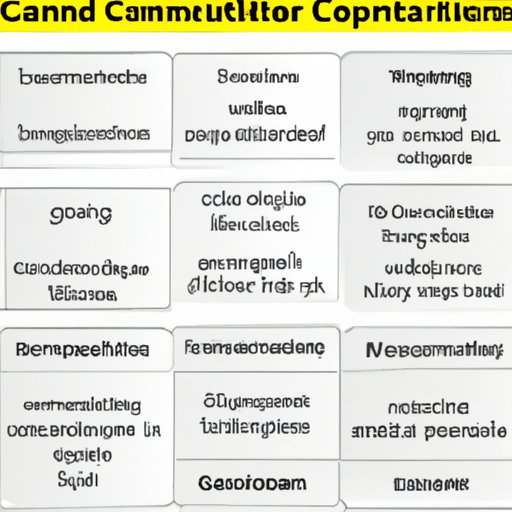Introduction
Writing conventions are the rules and standards that govern written communication. They are used to ensure accuracy and clarity in writing, making it easier for readers to understand what is being communicated. Knowing and following writing conventions helps writers create effective and high-quality documents.
Writing conventions can be divided into four main categories: grammar and syntax, punctuation, spelling, and capitalization. Each of these conventions helps make writing more clear and precise. By understanding and applying them correctly, writers can improve their writing in a variety of ways.

Different Types of Writing Conventions
Grammar and Syntax: Grammar and syntax refer to the structure of sentences. Grammar includes the use of parts of speech such as nouns, verbs, adjectives, and adverbs, while syntax refers to the arrangement of words within a sentence. By understanding and applying these conventions correctly, writers can ensure their sentences are clear and concise.
Punctuation: Punctuation marks are used to separate ideas and help readers understand the writer’s meaning. Common punctuation marks include commas, periods, question marks, exclamation points, semicolons, and colons. Properly placed punctuation marks can help writers express their ideas clearly and accurately.
Spelling: Spelling is the process of forming words correctly using letters. Good spelling helps readers understand the meaning of the text quickly and easily. Writers should always double-check their spelling before submitting a document to ensure accuracy.
Capitalization: Capitalization is the process of using capital letters to begin words or to indicate proper nouns. Capitalization helps writers emphasize important words and phrases and make the text easier to read.
Role of Writing Conventions in English Language Arts
Writing conventions play an important role in English language arts. In order to write effectively, students must understand and follow these conventions. Teachers should provide instruction in writing conventions and allow students to practice using them in their own writing. This will help students develop strong writing skills and become better communicators.
Following writing conventions also has many benefits. It helps writers create documents that are clear, concise, and accurate. It also improves the reader’s experience by making the text easier to read and understand. Finally, following writing conventions can help writers avoid common mistakes that can detract from the quality of their work.

Common Mistakes Writers Make When Neglecting Writing Conventions
When writers neglect writing conventions, they often make mistakes that can detract from the quality of their work. Common mistakes include incorrect grammar and syntax, improper punctuation, misspelled words, and incorrect capitalization. These mistakes can confuse readers and make the text difficult to understand.
To avoid these mistakes, writers should carefully proofread their work and check for errors. They should also consult a style guide or grammar reference book if they are unsure of the correct usage of any particular convention. Finally, writers should ask for feedback from other people who can help identify and correct any mistakes.

Strategies for Improving Writing by Following Writing Conventions
Following writing conventions can help writers create professional and academic documents that are clear, concise, and accurate. Writers should take the time to review and apply the appropriate conventions when creating documents. This will help them create documents that are free of errors and easy to read.
For professional writing, writers should keep their language clear and concise. They should also use correct grammar, punctuation, spelling, and capitalization. For academic writing, writers should use a formal tone and adhere to the conventions of the style guide required by their school or institution.
Conclusion
Writing conventions are essential for producing effective and high-quality documents. By understanding and applying conventions correctly, writers can ensure their documents are clear, concise, and accurate. Teaching and practicing writing conventions is important for helping students develop strong writing skills. Following writing conventions will also help writers avoid common mistakes and create documents that are easy to understand.
By taking the time to review and apply writing conventions, writers can improve their writing and create documents that are professional and accurate. With practice and dedication, writers can master the art of writing and create documents that stand out from the rest.
(Note: Is this article not meeting your expectations? Do you have knowledge or insights to share? Unlock new opportunities and expand your reach by joining our authors team. Click Registration to join us and share your expertise with our readers.)
